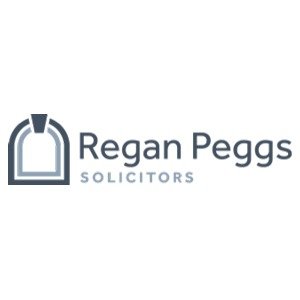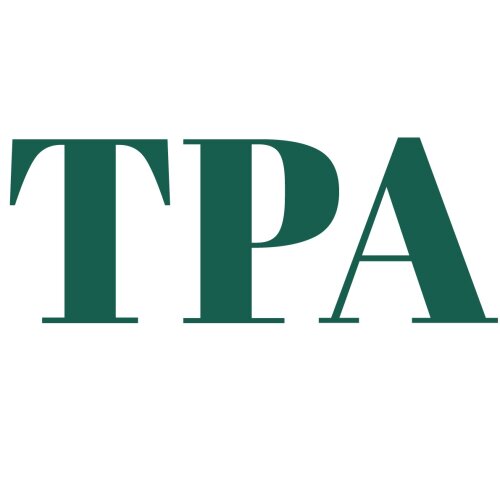Best Corporate Governance Lawyers in United Kingdom
Share your needs with us, get contacted by law firms.
Free. Takes 2 min.
Or refine your search by selecting a city:
List of the best lawyers in United Kingdom
About Corporate Governance Law in United Kingdom
Corporate governance in the United Kingdom refers to the systems, principles, and processes by which companies are directed and controlled. It sets out a framework for organizational leadership, accountability, ethical conduct, transparency, and stakeholder engagement within businesses. The UK is recognized globally for its robust corporate governance standards, largely shaped by the UK Corporate Governance Code, Companies Act 2006, and an established tradition of self-regulation and best practice recommendations.
Corporate governance law seeks to ensure that companies are run properly, balancing the interests of shareholders, directors, employees, customers, and the wider community. It provides mechanisms for managing risks, decision-making, disclosure of information, and handling conflicts of interest, which are critical for maintaining investor confidence and the integrity of the financial markets.
Why You May Need a Lawyer
Engaging a lawyer who specializes in corporate governance can be crucial in a variety of situations, including:
- Establishing a new company and setting up governance structures
- Drafting or reviewing company constitutions, articles of association, or board policies
- Advising on directors’ duties and responsibilities
- Navigating shareholder relations and disputes
- Ensuring compliance with the Companies Act 2006 and the UK Corporate Governance Code
- Responding to regulatory investigations or enforcement actions
- Managing conflicts of interest within the board or among shareholders
- Guiding on disclosure requirements and handling inside information
- Overseeing board or shareholder meetings and decisions
- Advising on mergers, acquisitions, and corporate restructures
A lawyer can provide essential advice to protect your personal and business interests, minimize risk, and ensure that your company operates within the legal and regulatory framework.
Local Laws Overview
Corporate governance in the United Kingdom is predominantly shaped by several key laws, codes, and guidance, including:
- Companies Act 2006 - The primary legislation regulating companies in the UK. It details directors' duties, company administration, reporting, and shareholders’ rights.
- UK Corporate Governance Code - This applies principally to premium listed companies on the London Stock Exchange. It covers leadership, board effectiveness, remuneration, accountability, and shareholder relations. While compliance is not mandatory for all companies, listed companies must report on how they apply the Code under the "comply or explain" principle.
- Financial Reporting Council (FRC) - The FRC oversees corporate governance standards, updates the Code, and provides guidance, particularly on audit, risk, and reporting.
- Listing Rules - Companies listed on the LSE must adhere to additional rules overseen by the Financial Conduct Authority (FCA), including specific corporate governance standards.
- Other Regulatory Guidance - These may include guidance or codes on remuneration, risk management, and gender diversity, among others.
Understanding these rules is essential for directors, company secretaries, investors, and stakeholders to ensure legal compliance and promote a culture of accountability within the company.
Frequently Asked Questions
What is the UK Corporate Governance Code?
The UK Corporate Governance Code sets out standards for good practice in relation to board leadership, effectiveness, remuneration, accountability, and shareholder relations primarily for premium listed companies on the London Stock Exchange.
Is the UK Corporate Governance Code legally binding?
The Code itself is not legally binding. However, companies with a premium listing on the London Stock Exchange are required by the Listing Rules to either comply with the Code or explain why they have not.
What are directors’ duties under UK law?
Key duties include acting in good faith to promote the success of the company, exercising care, skill, and diligence, avoiding conflicts of interest, and not accepting benefits from third parties. These are detailed in the Companies Act 2006.
Who enforces corporate governance rules?
Enforcement may be carried out by regulatory bodies such as the Financial Conduct Authority (FCA) and the Financial Reporting Council (FRC), and in some cases, through court action by shareholders or other stakeholders.
Do private companies need to follow the UK Corporate Governance Code?
Private companies are not required to follow the UK Corporate Governance Code, but all companies must comply with the Companies Act 2006. Many private companies adopt governance best practices to attract investment or prepare for public listing.
What disclosures must UK companies make?
Companies must file annual accounts, a strategic report, a directors’ report, and, for some, a corporate governance statement. Public companies must make additional disclosures as required by the Listing Rules.
What is the “comply or explain” principle?
It means companies must either comply with the provisions of the UK Corporate Governance Code or explain why they have chosen an alternative approach, allowing stakeholders to assess their governance arrangements.
How are conflicts of interest managed in UK companies?
Directors must declare any conflicting interests and, in most cases, abstain from participating in decision-making where a conflict exists. Policies and procedures should be in place to manage conflicts appropriately.
What are shareholders’ rights in UK corporations?
Shareholders have rights to attend, speak, and vote in general meetings, receive dividends, approve key decisions, and challenge board conduct under certain circumstances as set out in the Companies Act 2006.
What penalties exist for breaching corporate governance requirements?
Penalties can include regulatory sanctions, fines, disqualification of directors, or civil action by shareholders. Poor governance may also damage a company’s reputation and access to capital.
Additional Resources
If you need further information or assistance, these resources may be helpful:
- Financial Reporting Council (FRC) - Provides official guidance and updates on governance codes
- Financial Conduct Authority (FCA) - Regulation and oversight of listed companies
- Companies House - Registry of company information and statutory filings
- Institute of Directors - Offers resources, training, and support for directors
- The Chartered Governance Institute UK & Ireland - Professional body for company secretaries and governance professionals
- Law Society of England and Wales - Lists solicitors specializing in corporate governance law
Next Steps
If you require legal advice or assistance in corporate governance matters:
- Assess your organization’s current governance structure and identify any concerns or areas for improvement
- Gather relevant documents such as articles of association, shareholder agreements, past governance statements, and any correspondence with regulators
- Contact a qualified solicitor or law firm specializing in corporate law and governance
- Prepare to discuss your specific circumstances and questions in detail with your legal advisor
- Stay updated with changes in laws, rules, and best practice recommendations that may affect your company
Taking timely legal advice ensures your company remains compliant, transparent, and well-governed, helping to protect its reputation and long-term success.
Lawzana helps you find the best lawyers and law firms in United Kingdom through a curated and pre-screened list of qualified legal professionals. Our platform offers rankings and detailed profiles of attorneys and law firms, allowing you to compare based on practice areas, including Corporate Governance, experience, and client feedback.
Each profile includes a description of the firm's areas of practice, client reviews, team members and partners, year of establishment, spoken languages, office locations, contact information, social media presence, and any published articles or resources. Most firms on our platform speak English and are experienced in both local and international legal matters.
Get a quote from top-rated law firms in United Kingdom — quickly, securely, and without unnecessary hassle.
Disclaimer:
The information provided on this page is for general informational purposes only and does not constitute legal advice. While we strive to ensure the accuracy and relevance of the content, legal information may change over time, and interpretations of the law can vary. You should always consult with a qualified legal professional for advice specific to your situation.
We disclaim all liability for actions taken or not taken based on the content of this page. If you believe any information is incorrect or outdated, please contact us, and we will review and update it where appropriate.
Browse corporate governance law firms by city in United Kingdom
Refine your search by selecting a city.

















